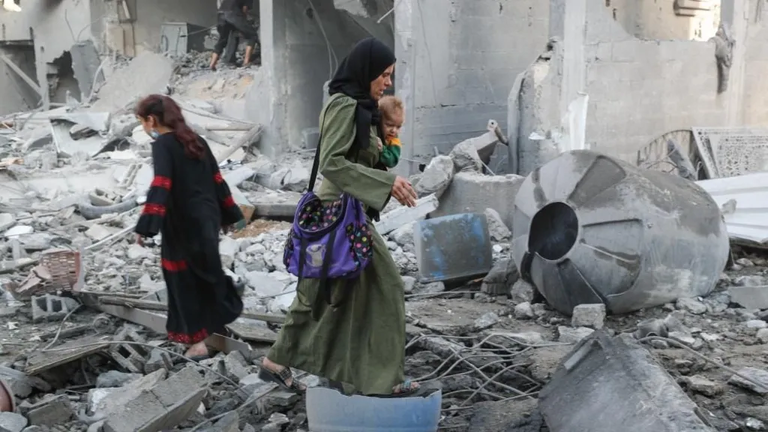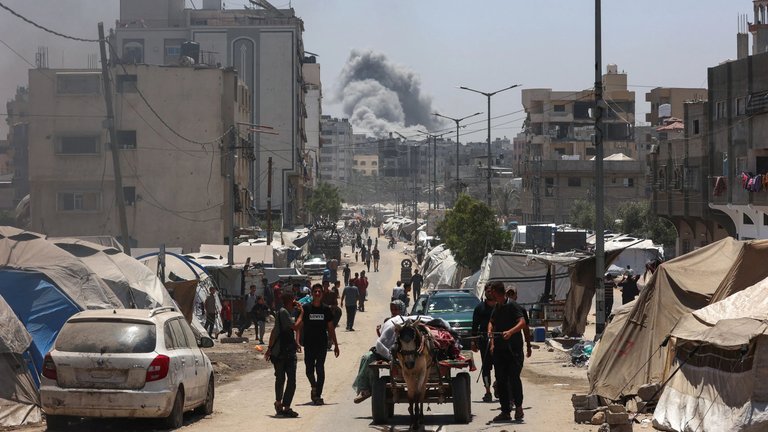Hamas Counters U.S. Ceasefire Proposal as Gaza Crisis Deepens

In response to a U.S.-backed proposal for a ceasefire in Gaza, Hamas has submitted a counteroffer that emphasizes its long-standing demands: a permanent end to hostilities, a full Israeli military withdrawal from the Gaza Strip, and the sustained delivery of humanitarian aid. Although Hamas did not outright reject the U.S. framework, its reply represented a significant departure from the original terms, which Washington claims Israel has accepted.
Hamas’s offer includes the release of 10 living Israeli hostages and the remains of 18 others in exchange for a to-be-determined number of Palestinian prisoners. The group made it clear that any temporary pause in fighting must serve as a path toward a lasting ceasefire—something the current U.S. proposal does not guarantee. This nuanced stance signals that Hamas is not entirely closing the door on negotiations, but is instead seeking major adjustments before moving forward.
The U.S. plan, reportedly developed with Israel’s input, offers a 60-day halt in combat and the phased release of Israeli hostages. During the first week of this pause, 28 hostages—both alive and deceased—would be released, followed by additional releases contingent on progress toward a long-term truce. In exchange, Israel would release over 1,200 Palestinian detainees and allow humanitarian aid into Gaza through international agencies such as the United Nations and the Red Crescent.
However, Hamas is pushing for amendments on three major points: the duration of the ceasefire, the mechanisms and guarantees for humanitarian aid, and the scope of Israel's military withdrawal. A Hamas official described their reply as constructive and suitable for further discussion, though the U.S. special envoy Steve Witkoff dismissed it as "totally unacceptable" and a step backward. He urged Hamas to accept the proposal to begin proximity talks and finalize a 60-day truce.
Israeli leadership echoed Witkoff’s position. Prime Minister Benjamin Netanyahu's office reiterated that Israel had accepted the revised terms proposed by the U.S., while accusing Hamas of maintaining its refusal to engage in a realistic negotiation. Defense Minister Israel Katz went further, warning that Hamas must either accept the deal or face destruction.

Yet Hamas contends that the negotiation process has been skewed. Basem Naim, a senior Hamas official, criticized the mediation for heavily favoring Israel. He said that an earlier version of the proposal had been agreed upon between Hamas and the U.S. envoy, only for Israel to make unilateral changes that undermined the original understandings. “Why is Israel’s response always treated as final while ours is questioned?” he asked, accusing mediators of lacking impartiality.
This diplomatic impasse is unfolding under dire humanitarian conditions. The situation in Gaza has deteriorated sharply, with the enclave’s population enduring severe shortages of food, water, and medical supplies. Following an 11-week Israeli blockade, the limited aid allowed into the territory has often been intercepted by civilians desperate for sustenance. According to the UN World Food Programme, nearly 80 aid trucks were looted in a single day, highlighting the growing chaos.
Despite some easing of restrictions, the aid reaching Gaza remains far below the needs of the population. The Hamas-run health ministry reported dozens of deaths and hundreds of injuries in recent Israeli strikes, compounding the urgency of a ceasefire that can address both humanitarian and political crises.
The broader context remains rooted in the aftermath of Hamas’s attack on Israel on October 7, 2023, which resulted in over 1,200 Israeli deaths and hundreds of hostages taken. In response, Israel launched a military campaign that has since caused tens of thousands of Palestinian casualties.
Caught between external pressure from mediators and internal pressure from a suffering population, Hamas is navigating a precarious political landscape. Its current counterproposal reflects both its strategic limitations and its insistence on terms that offer more than just a temporary reprieve from war.
https://www.reddit.com/r/Palestine/comments/1l0cgjj/hamas_counters_us_ceasefire_proposal_as_gaza/
This post has been shared on Reddit by @dkkfrodo through the HivePosh initiative.